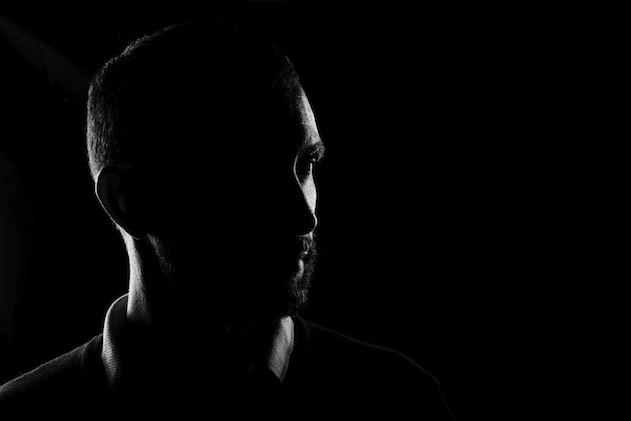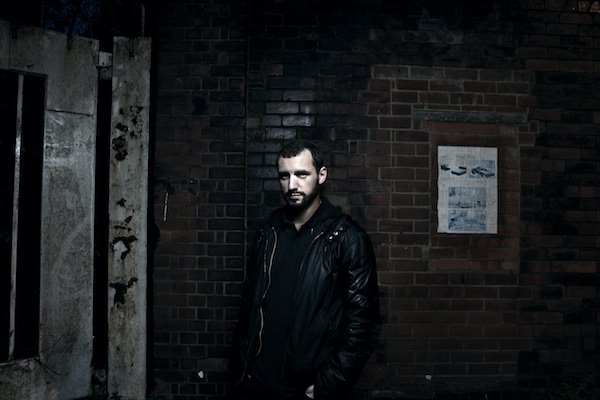Paul Woolford’s name has been synonymous with quality British house and techno for over a decade but it’s his Special Request alias that’s currently winning him the most plaudits. On the back of the recent fourth instalment of the vinyl-only series, we caught up with him to discuss the origins and motivations behind the project, the highly anticipated September release of a double album, plus whether another of his well-known monikers will make a return.

Attack: You’ve recently released the fourth of your Special Request EPs, Vapour/Mindwash. Can you tell us more about that project – how it came into being, the ideas behind it and where you’re looking to take it?
Paul Woolford: The soul of it comes from my teenage years listening to pirate radio and the seeds that were sown from those experiences. I had the shape of the project in mind for some years before the music came, but once I started to make the music it was like a tidal wave. There’s a lot of unreleased material that formed the initial blueprints, and then it’s been a case of refining the approach. Not necessarily the tracks, but the approach, intent, and the signals that are sent from releasing something. The scope is quite wide-ranging so the key is in editing really – what any artist chooses to make public or release drastically shapes and affects perception so I’ve been playing with this over the course of the singles and there’s going to be an EP drop before the full album.
You’ve regularly name-checked Ben UFO and the Hessle guys. What is it about what those guys are doing that you find more inspiring than the generation of producers that you came up through the ranks with?
They approach things with zero complacency and that is something that’s actually quite rare.
You’ve mentioned previously that radio played a pivotal role in your musical development. Do you think radio continues to be influential for dance music as a whole? With stations like Rinse and NTS it seems like radio’s more important than ever…
I think it’s never been more important and stations like Rinse & NTS continue to clearly signpost bolder directions for broadcasting. I think here would be a good place to point out that what Boiler Room do on the scale they do it is a really powerful direct plug into youth culture. Yesterday Boiler Room did a two hour live set by Surgeon and yet Radio 1 still cannot find space in their schedule for a dedicated techno show – this is absolutely bizarre. What Boiler Room are showing is that you don’t need to water down and soft-soap things musically – you can broadcast a PAN label event and people have a hunger to hear it as much as the commercially-minded material. There’s a place for it all.
As far as my musical development, the doors that were opened due to pirate radio broadcasts altered everything. From my attitude about what could be mixed into what, to the acceptance of different forms – it’s important to question things and look beyond the surfaces. NTS is excellent as well, in a different form: community broadcasting to the point where the people can just walk up to the window and watch you play when you’re there. It’s a very inclusive approach. It’s DIY community service, essentially.
Your music seems to straddle or take influence from every corner of electronic music – techno, house, garage, jungle, dub – which has meant you’ve managed to avoid being pigeonholed as an artist. You’ve mentioned before that this was sometimes a challenge when being booked for gigs and people not getting what they expected due to conceptions based on one or two releases. Would you say that people have become more receptive to the music you make as genre boundaries continue to blur even further?
I think people are collectively a little more open-minded today than perhaps they have been in the past, certainly in terms of taking chances during a DJ set. But having said that, you need to choose those moments carefully. It’s healthy to challenge people in the right place. Why should any audience be underestimated? Obviously if you choose this path it’s a tricky one to walk, and I’ve caused myself problems in the past when I’ve been a little more cavalier, but ultimately you need to stand for something. We’re in an age where people make comments if you don’t have the same phone or sunglasses as everyone else – this in itself tells you that despite what we may think about attitudes on the surface, deep down many are terrified of not conforming. Ultimately, you have to sleep at night, you have to make yourself happy. The balance is struck in calculated risks.
Ultimately, you have to sleep at night, you have to make yourself happy. The balance is struck in calculated risks.
In the mid 2000s it seems as though electronic music was much more fragmented – DJs, producers and punters stuck almost religiously to one genre. That seems to have changed in recent years with a much higher level of cross-pollination. What’s your take on the state of dance music at the moment and the convergence of genres?
I find listening to one sound completely tedious, and I don’t know anyone that does that at home so why do it anywhere else? Obviously there are certain things that have anaesthetic power when approached like this but even a dedicated techno DJ and visionary like Robert Hood approaches his DJ sets by taking material from different genres and years. How a DJ set is put together is the key to making it work or bringing out different aspects, also the actual location of your gig and the moment in time can be of key importance. There are more things at play than just a selection of records.

06.15 PM
Great read, Paul seems like a cool person….keep up the amazing work with this site! 🙂